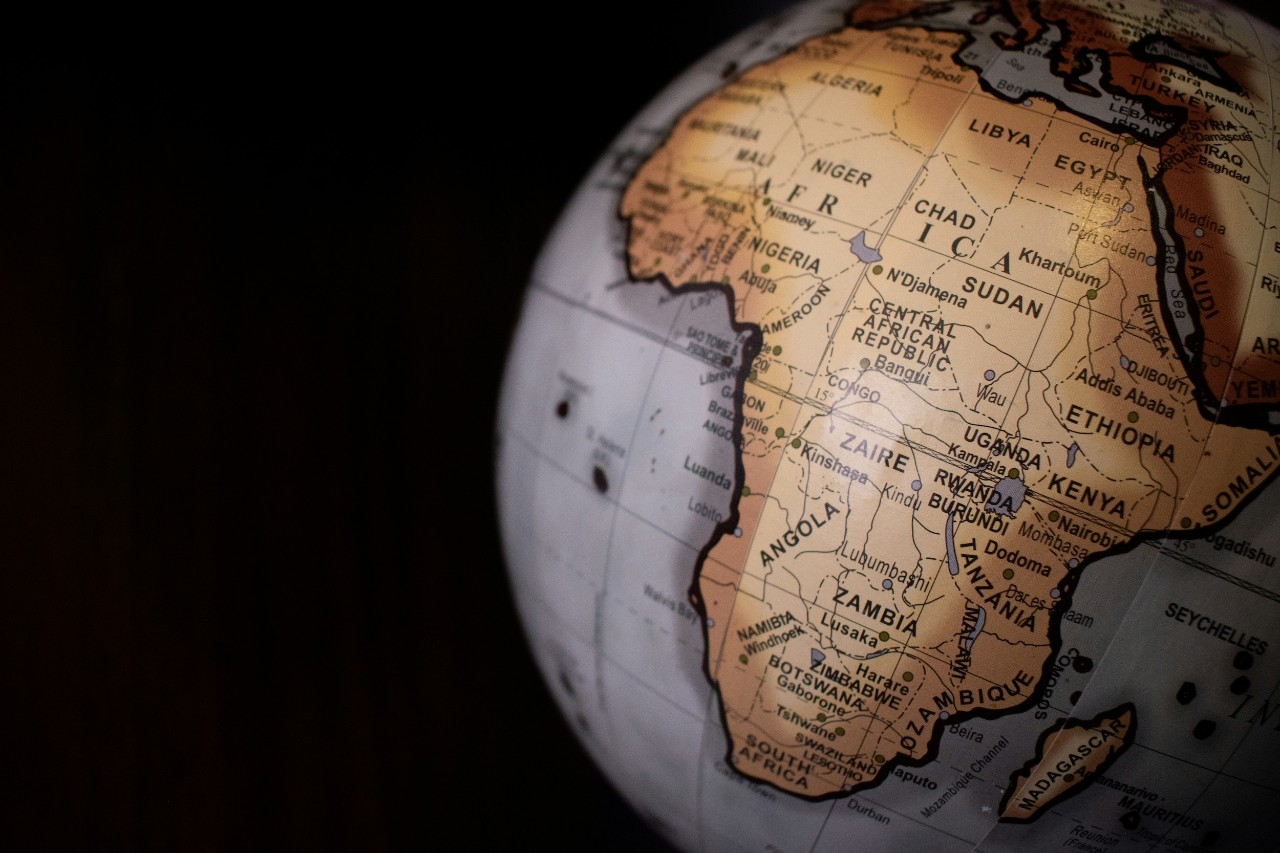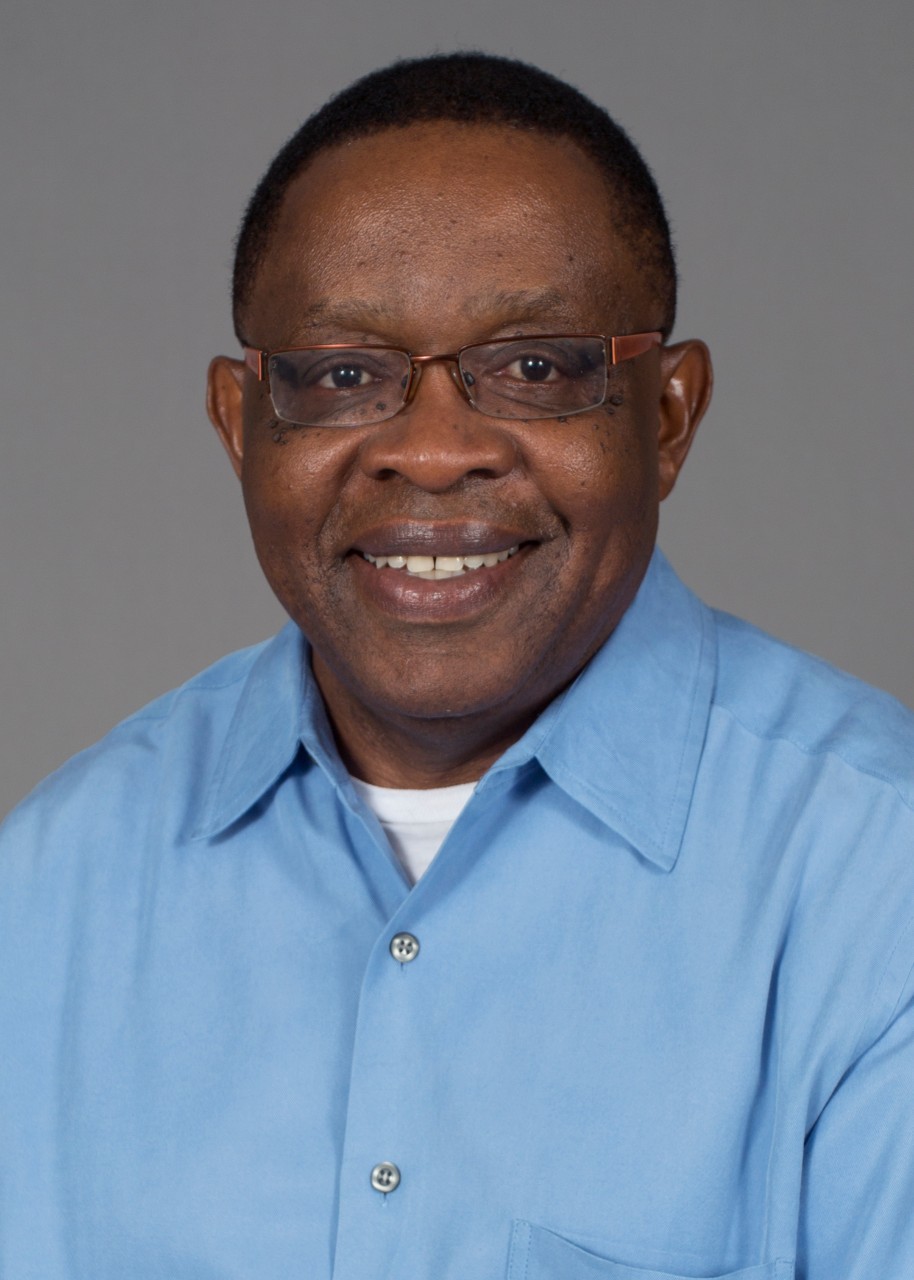
What is Africana Studies?
Find out if this curriculum of advocacy, diversity is right for you
In the Africana studies major within UC’s College of Arts and Sciences, you will explore a variety of approaches to understand the experiences of African, African American, Afro-Latin, Afro-Caribbean, and Afro-European populations globally.
This interdisciplinary program blends tools from sociology, psychology, literature, anthropology, politics, and history to address social issues affecting people of African descent across continents and diasporas.

Joseph Takougang. Photo/Provided.
“Students come to us wanting to know more about the people of African descent. They want to know about their history, their cultures and subcultures,” said Joseph Takougang, professor and head of the Africana Studies department.
The curriculum aims to equip students with valuable skills, including developing an interdisciplinary cultural and social approach; integrating theoretical perspectives with applied research; mastering critical thinking, and honing written and oral communication.
The close-knit program has eight full-time faculty members who are ready and willing to meet with students one on one, building strong and lasting relationships between professors and students.
“You are always welcome in Africana studies,” Takougang said.
Real-world experience

Holly McGee and Jan Rotich. Photo/Provided.
The Africana studies department is proud to be able to bring real-world experiences to those interested in learning more about Black history, experiences, and culture.
Holly McGee, an associate professor in the department of Africana studies, has amped up efforts to educate all students about Black history and culture. She has orchestrated trips for over 500 students to broaden their horizons and provide first-hand experiences to any student interested.
McGee created “The Talented Tenth" program, in collaboration with the Taft Research Center, in 2023. The program specifically involves the top 10 students with Africana studies majors, minors, or certificates. This group, alongside one of McGee’s classes and assistant professor Felicia Denaud, took a 4-day, 3-night trip to Washington D.C. in 2023. The visit included exploring the National Museum of African American History and Culture, along with other historical sites in the D.C. area.
“Seeing the level of care that they had in making sure we not only learned about things in the classroom, but in our world, is phenomenal,” Africana studies alumnus Janice ‘Jan’ Rotich said. Rotich was part of “The Talented Tenth” in her last undergraduate year.
Notable classes
Courses in the Africana studies department are taught by passionate Black professors with extensive knowledge about the complexities of these issues and topics, and often provide a more race-focused perspective than more generalized course options.
“It’s one thing to go through a generic political science or history class and get a unit about slavery, or a unit about Jim Crow laws, but it’s another thing to have actually taken full semester-long classes about African American social and political theory, or sociology of race…you don’t get those kinds of lessons in generic classes,” Rotich said.
Classes in the program range from tackling health, sociology, history, art, and more course subjects. Courses like Community Health and Minorities: Yesterday, Today, and Tomorrow and Global Health Equity provide a distinctive perspective on health issues, particularly concerning race.
Community Engagement and Service Learning offers students the opportunity to earn credits while volunteering hands-on with local nonprofits and organizations that serve urban minority populations, with a particular focus on African Americans.
One art class, The Black Body in European Art, teaches the historical and contemporary ways in which black voices have been silenced and black bodies have been ambiguously imagined in Western-dominated global culture.
The department also provides Elementary Swahili, fulfilling foreign language credit requirements for many UC majors and offering a unique option for those interested in learning a language spoken across more than 14 countries.
Career and graduate study possibilities
“You have a lot of students ask, ‘What can I do with an Africana studies major?’ and I tell them we can help you with whatever you want to do in your future, just like any other major,” Takougang said.
Alumni and graduates from the program have gone on to be successful in a variety of career roles, including but not limited to:
Community outreach coordinator
Immigration consultant
Museum curator
Historian
Lawyer
Educator
Healthcare professional
Multicultural consultant
Non-profit advocate
“We can work with you to make sure you obtain your career goal. Whether you want to go get your PHD, whether you want to go to law school, medical school…we will help you get there,” Takougang said.
Take it from a graduate
Graduates not only gain a deep understanding of Africana experiences but also possess the skills to contribute meaningfully to discussions about their diverse narratives.
Rotich debated between a few academic paths after committing to UC, including neuroscience, political science, and law, but always wanted to be an activist for the underrepresented members of society. This, combined with her interest in Black culture and community, drew her to double major in Political Science and Africana studies, with aspirations to go to law school.
“Whatever opportunity I get to protect the most underrepresented folks in our society — that will make me happy,” Rotich said.
Now, Rotich is a candidate for a Masters of Public Administration degree with a focus on Social Justice, and is applying to law school with a specialization in civil rights.
“I have to pay homage to not just UC, but more specifically to the Africana studies department. They are a humongous reason as to why I was so happy at UC. The department is like a family,” Rotich said. “Every single person in the department is truly somebody who is invested in my future and my success, and I could not be more happy to be part of such a supportive system.”
Featured Image a Top: Globe focused on the Continent of Africa. Photo/James Wiseman.

Related Stories
Three friends, alumni work to create opportunities for others
April 15, 2021
Good friends have your back. Great friends challenge you to strive for more. Ashlee Carlisle, BBA ’09, Anndréa Moore, BBA ’10, and Andrew Oyedeji, BBA ’12, are three great friends anyone should wish for in life.
UC Blue Ash event focuses on transgender inclusivity in health care
March 31, 2021
As health care providers take steps to provide an inclusive environment for all patients, it’s important to consider the needs of transgender and nonbinary people.
Engineer finds success in higher education administration
May 12, 2021
Jennifer Little Edmonds, PhD talks about how her background as an engineer shaped her career path to higher education administration.
Students establish Association for Women of Color in Engineering
May 12, 2021
Three University of Cincinnati student found a new student organization to support women of color in engineering.
Cultivating connections
Finding your place in the community is a huge part of being successful in college. That's why the University of Cincinnati offers a multitude of centers, programs and services that provide support and a sense of community to historically underserved populations.
Duke Energy supports UC Clermont sensory, meditation rooms
June 30, 2021
The University of Cincinnati Clermont College recently received $10,000 from Duke Energy to enhance Accessibility Resources available to students.
President Pinto's Statement on Asian American Hatred and Violence
March 17, 2021
President Pinto's statement condemns rising hatred and violence against Asian Americans.
President Pinto's Statement on United Asian Advocates
April 8, 2021
President Pinto condemns bigotry and commends the United Asian Advocates student group for their efforts to eliminate racism toward Asians and Asian Americans.
Why is diversity important in engineering?
Diversity of thought, cultures, and backgrounds is important in engineering fields. Problem solving is easier when more are involved. Learn more from Dr. Whitney Gaskins, Assistant Dean of Inclusive Excellence and Community Engagement.
Spectrum TV: Camp for women of color inspires future engineers
July 28, 2021
UC's College of Engineering and Applied Science hosts a summer camp to encourage women of color to pursue engineering and science careers.